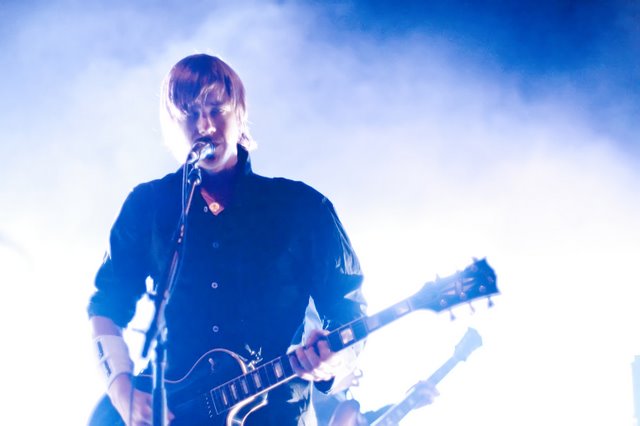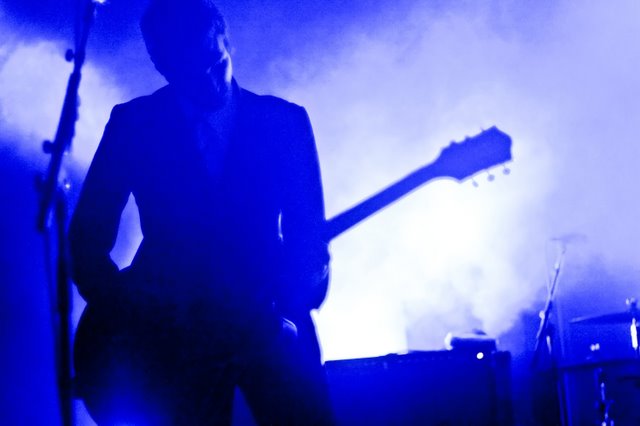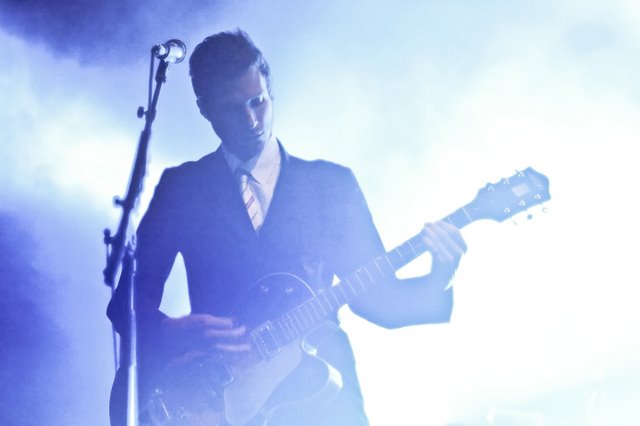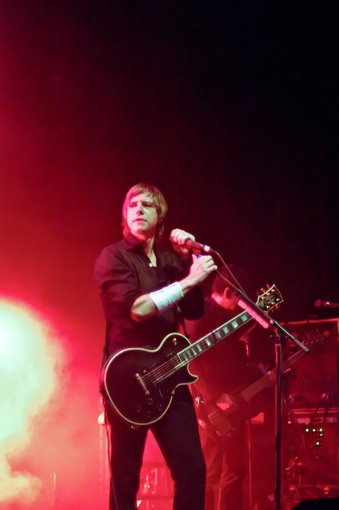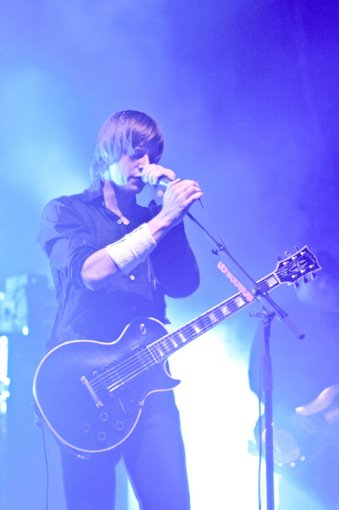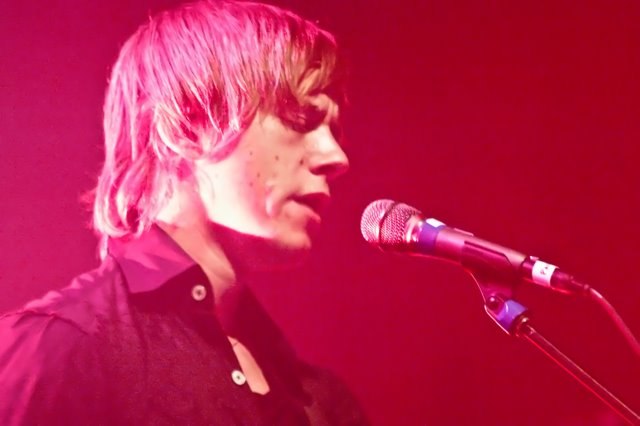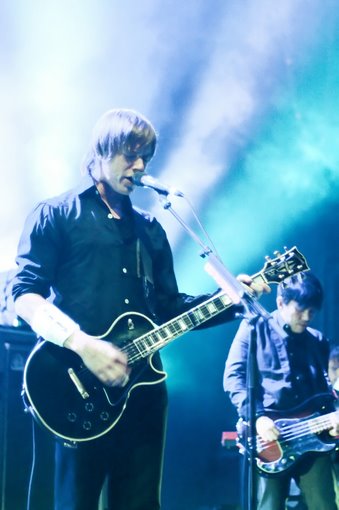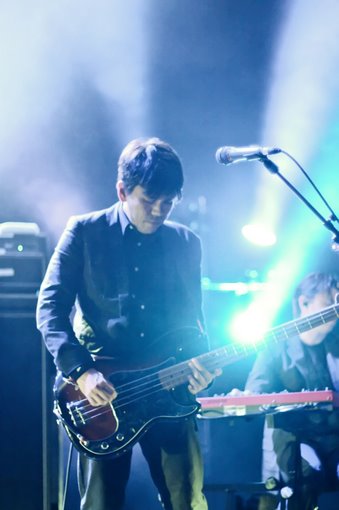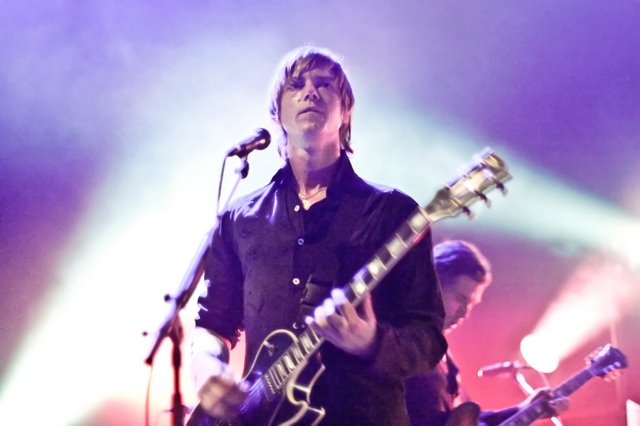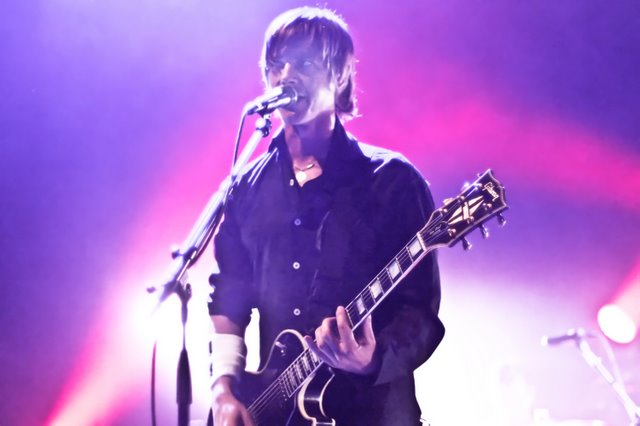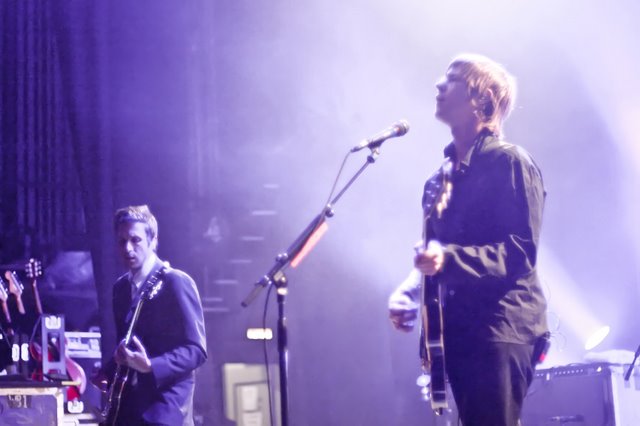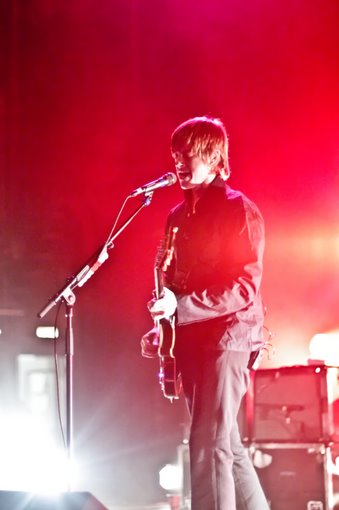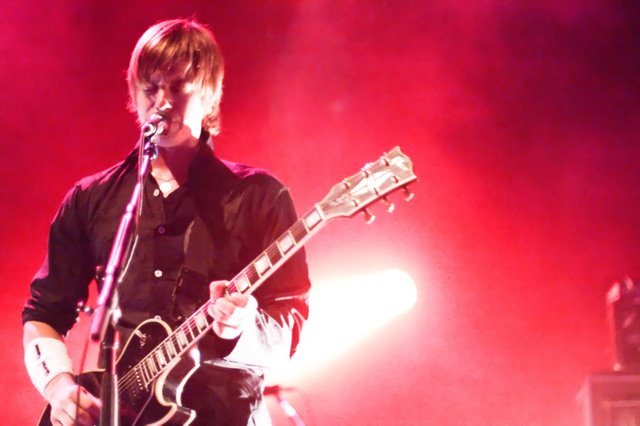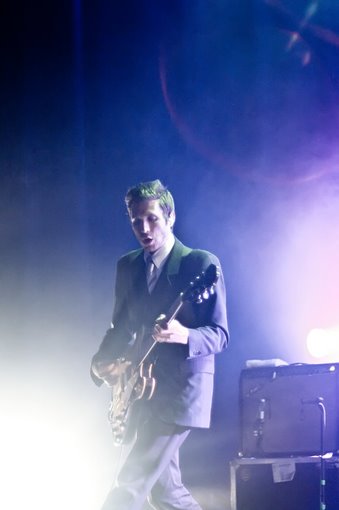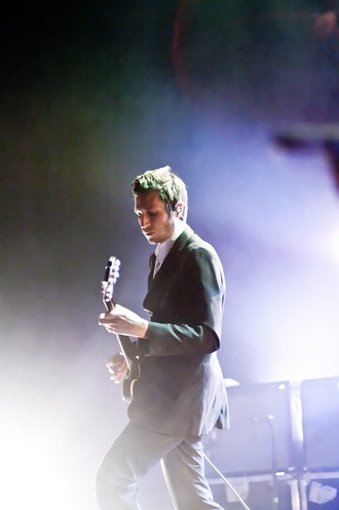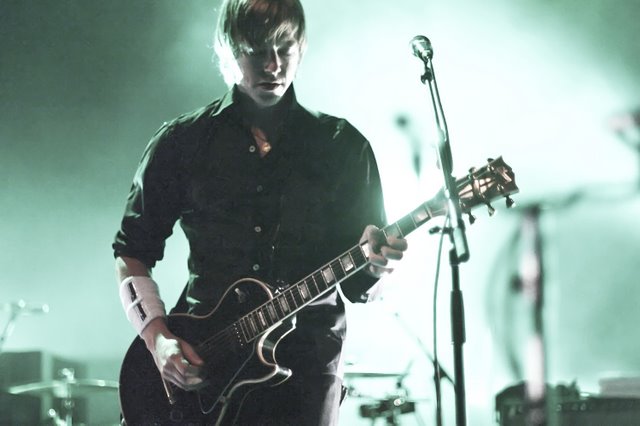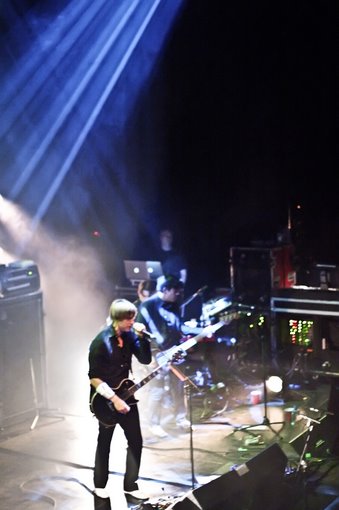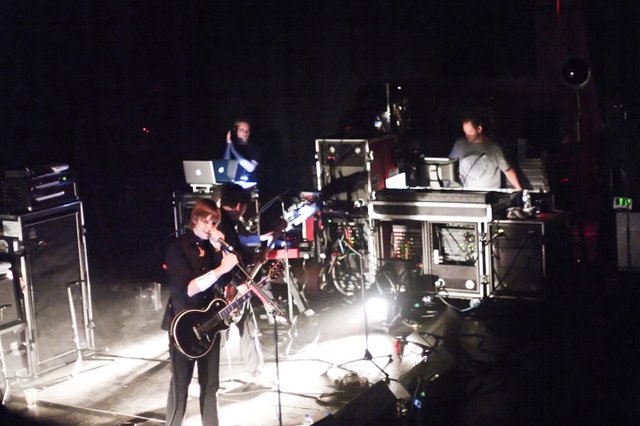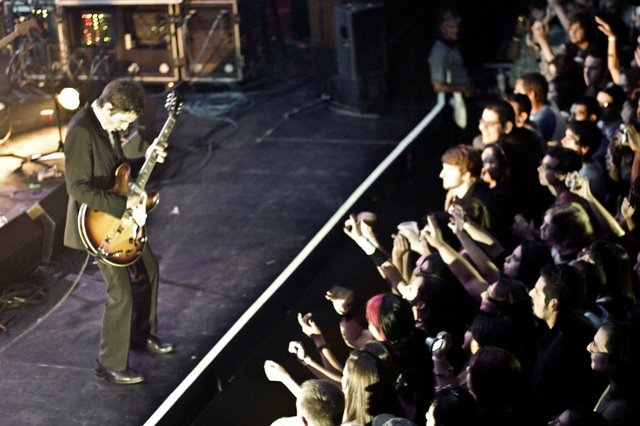Interpol Keeps It Solid At The Vic
By Kim Bellware in Arts & Entertainment on Aug 19, 2010 6:20PM
Interpol never seemed to suffer much from the endless comparisons made between them and Joy Division—or more pointedly, the contention that they were skinny tie knock-off of Joy Division. Their 2002 debut, Turn On the Bright Lights, proved to be intimate-yet-epic, slightly paranoid, urgent, and was roundly well-received. After Bright Lights, the band’s popularity grew at a steady clip, with a strong sophomore album, buzz-generating features on the TV series The O.C. (and subsequent inclusion on the soundtrack), and a headlining slot at Lollapalooza. Then came the jump to a major-label and with it, the slight turn of a corner, musically.
If Interpol has any misgivings about moving their sound from firmly post-punk to a less distinguishable, more accessible (and ultimately less exciting) strain of rock, Sunday night’s sold-out show at The Vic was their very diplomatic way of showing it.
The bulk of show revisited most of Bright Lights and Antics, lightly stepping over their Capitol Records debut, Our Love to Admire. Favorites like "C'Mere," "Leif Erikson," "Narc" and "PDA" had a the darker tone that set it apart from the more generic Our Love contributions like "Rest My Chemistry." From what we gleaned from songs like "Summer Well," from their upcoming self-titled record, Interpol looks like it may be pivoting away from the MoR direction they were headed in and finding an acceptable middle ground.
The band has lost their gun holster-wearing, Crispin Glover-like weirdo, bassist Carlos D, and exists officially as a trio now, but for live acts are joined by former Slint guitarist Dave Pajo for bass and keys duty, Brandon Curtis from The Secret Machines for vocals. The changes haven't affected the live shows much since, eerily, Interpol sounds exactly the same as they did when we caught them in 2003.
Live, Paul Banks' flat tone stays remarkably consistent, as does the mix, levels and every other instrument on stage. We couldn't decide if it was comical or just odd; dressed in their signature crisp black suits, each member performed their own repetitive movement onstage reminiscent of of a Robert Palmer video. Interpol's startling ability to replicate their records so precisely live is impressive, if not a little unnerving at times.
Between songs, though, it was apparent Interpol is very much flesh and blood. With a flurry of waves, bows, "thank-yous" and passing of guitar picks, the band returned the feelings that the obviously enthralled crowd was putting their way. The three song encore of hits "NYC," "The Lighthouse" and "Stella Was A Driver and She Always Was Down" closed out a set that was supremely satisfying and masterfully played.
With Interpol's live songs sounding so indistinguishable from their recorded version, it certainly removes a certain element of surprise (unless you get surprised when you see a band playing that tightly right before your eyes). The man-or-machine-like element notwithstanding, we're happy to see the band still has the energy and desire to kick out great shows. The latter part of their career thus far makes us biased in favor of their 2002 beginnings, but perhaps with September's Interpol, they'll find a way to, in a manner of speaking, start again.
